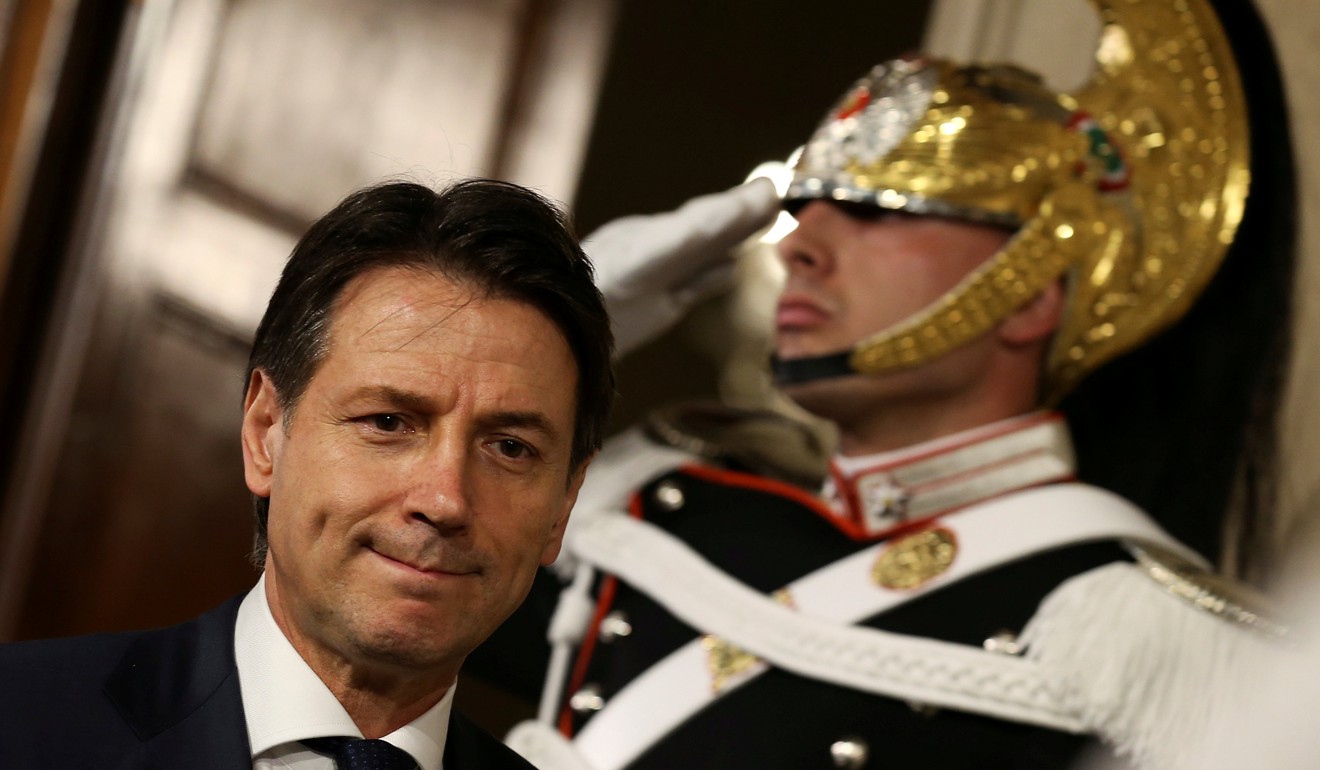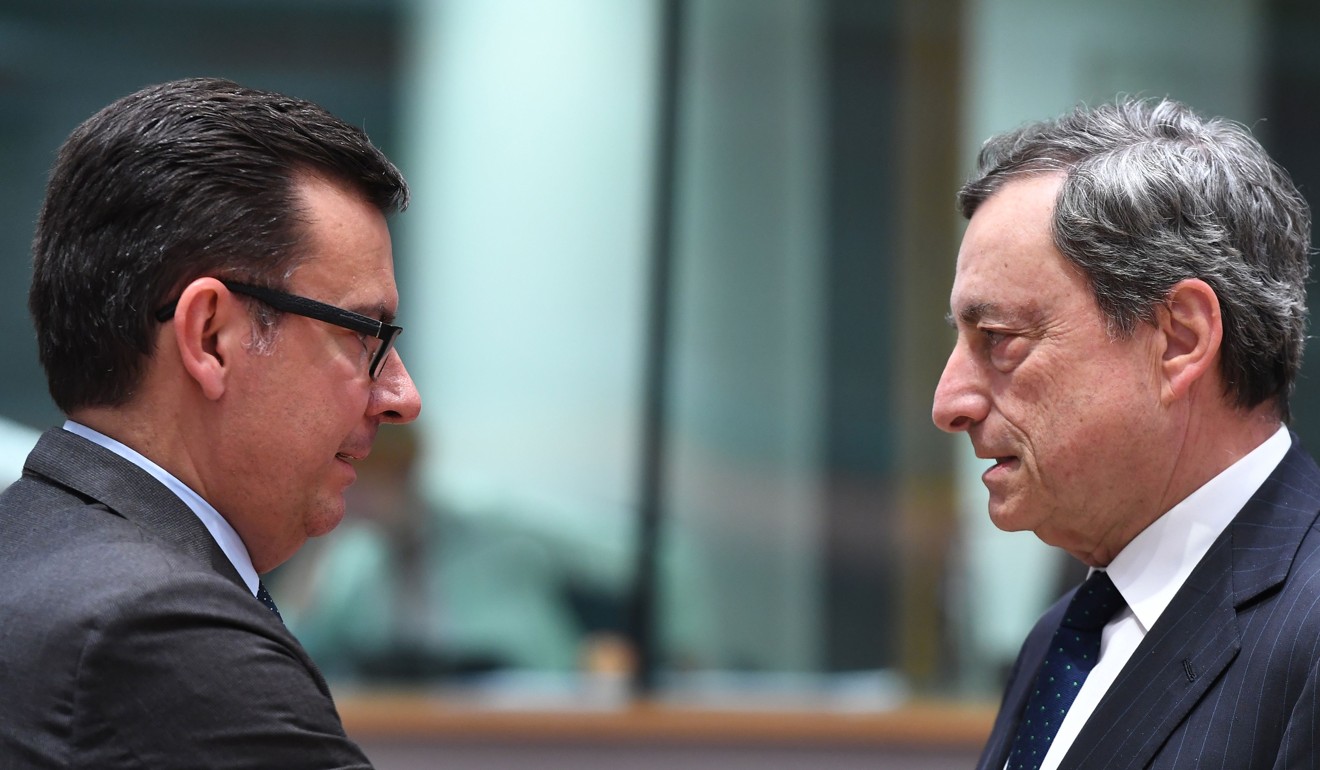
Political crisis in Italy revives fear of a euro-zone meltdown. How far will markets be spooked?
Nicholas Spiro says financial instability in Italy, with its ‘too big to be saved’ government bond market, has the potential to be systemic, and may well undermine confidence in the global economy and derail Fed and ECB plans for monetary tightening

Ask emerging market central bankers what has been at the top of their list of concerns over the past several weeks, and it is clear what their answer will be: the sudden surge in the US dollar and Treasury yields as bond investors begin to price in a faster pace of monetary tightening by the Federal Reserve.
The significant shift in perceptions of US monetary policy, triggered by the recent rise in inflation expectations, has been the most significant development in financial markets this year, sparking an eruption of volatility in early February and subsequently inducing a sharp sell-off in developing economies.
Yet, while the repricing of US interest rate expectations has been the main driver of markets in recent months, another major development is beginning to affect investor sentiment: renewed concerns about the stability and integrity of the euro zone stemming from the escalation in political risk in Italy, the euro-zone’s third-largest economy and now the main source of stress in markets.
Last Friday, the spread, or gap, between the yield on benchmark 10-year Italian bonds and its German equivalent reached 215 basis points, its highest level since 2014. More tellingly, German 10-year debt, a safe haven asset for nervous investors, enjoyed its best weekly gain since the acute phase of the euro-zone debt crisis in mid-2012, according to data from Bloomberg.

A bitter row over the formation of the first populist government in a leading European economy has plunged Italy into political turmoil, reviving concerns that Europe’s shaky monetary union may soon face another existential crisis akin to the one that nearly tore the bloc apart in 2012. Italy’s two anti-establishment parties, which seek to overhaul the economic governance of the euro zone in an effort to prioritise social policies, abandoned plans to build a government on Sunday after the country’s president rejected their staunchly eurosceptic candidate for finance minister.
If the woes of Greece, whose economy does not even account for 2 per cent of the euro-zone’s gross domestic product, were allowed to call into question the singleness of the euro zone, it stands to reason that financial instability in Italy, whose government bond market is huge and considered “too big to be saved”, has the potential to, as JPMorgan warned in a report last Friday, “become systemic”.

This presents an acute challenge for the European Central Bank, which plans to call time on its quantitative easing programme at the end of this year and eventually begin raising interest rates. It is the ECB’s aggressive purchases of Italian debt – it now holds more than 15 per cent of the country’s bonds – that have helped keep a lid on yields. If markets start questioning the ECB’s commitment to Italy’s bond market, and therefore its willingness to prolong its ultra-loose monetary policies, the recent sell-off could turn into a rout.
The renewed concerns about Italy and the euro zone, moreover, are surfacing just when the period of “synchronised” growth in the global economy has run its course, mainly because of a marked slowdown in Europe’s economy. According to the results of the latest global fund manager survey, published by Bank of America Merrill Lynch earlier this month, only a net 1 per cent of investors believe the world economy will strengthen over the next 12 months, the lowest proportion since early 2016.
Throw in the continuation of the Bank of Japan’s quantitative easing scheme and warnings from some of the Fed’s own policymakers that the US central bank must be careful not to raise rates too aggressively, and the window for a significant tightening of global monetary policy is narrower than was the case even as recently as the beginning of this year.

If the return of instability in the euro zone puts markets under more severe strain and starts to undermine confidence in the global economy, the Fed’s rate-hiking cycle could be derailed while the ECB would come under intense pressure to shelve its own plans to tighten policy.
Algebris Investments, a UK hedge fund, believes the world’s major central banks are running out of time to tighten policy. In a note published earlier this month, it argues that the Fed “may be already driving the [monetary policy] normalisation train out of the platform before other central banks are able to hop on”.
This is still a minority view among international investors. But it is starting to gain traction.
For the time being, the ECB still intends to join the Fed in removing stimulus. Yet if Italy triggers a crisis in the euro zone, Europe’s central bank will be left stranded on the platform.
Nicholas Spiro is a partner at Lauressa Advisory